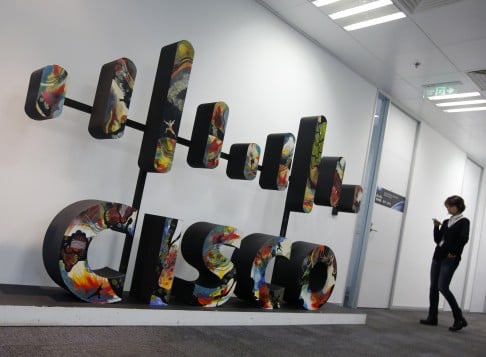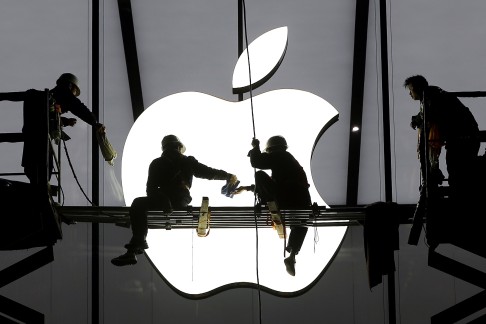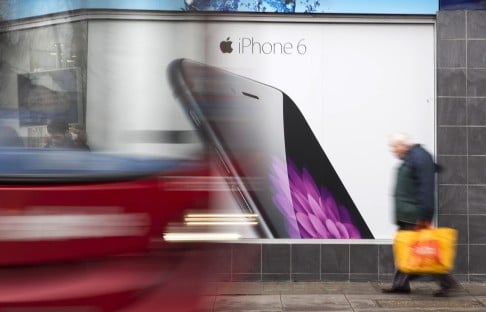Advertisement
Analysis | WTO rules make it difficult for Cisco and Apple to challenge Chinese government 'black list'
Reading Time:3 minutes
Why you can trust SCMP

Complex World Trade Organisation (WTO) regulations will make it very difficult for the US government and major technology companies to take legal action against Beijing's decision to drop Apple and Cisco from its approved state procurement lists.
When the Chinese government joined the WTO in December 2001, Beijing did not sign up to a plurilateral treaty on government procurements. As a result, China is able to remove any foreign brands that the government doesn’t like from its state procurement lists with little potential WTO blowback.

Among the global technology brands that Beijing took off its approved state procurement lists – a de facto “black list” for state purchases of certain foreign brands in what some analysts said was a response to revelations of widespread Western cybersurveillance – the chief casualty was US network equipment maker Cisco Systems. In 2012 the company had 60 products on the Central Government Procurement Centre's (CGPC) list, but by late 2014 had none, Reuters reported earlier this week, quoting an analysis of official data.
"Virtually all leading US tech companies are at risk of being affected, including Cisco Systems, Intel, Microsoft, EMC, Qualcomm, Citrix and Apple," said Stephen Ezell, a senior analyst at United States-based think tank the Information Technology and Innovation Foundation.
"Unfortunately, direct options for recourse by trading partners through multilateral venues are limited, largely because China has failed to accede to the Government Procurement Agreement (GPA), despite a commitment to do so after the country joined the WTO in 2001."
Advertisement

The GPA was implemented under the auspices of the WTO in 1996 to ensure open, fair and transparent competition in the government procurement markets of the parties to the treaty.
It currently consists of 43 WTO members, including Hong Kong and Taiwan. China and 27 other WTO members participate as observers.
While business see their prospects in the mainland's public sector decrease, affected foreign hi-tech companies may find it difficult to simply pack up and leave since the mainland remains the world's third-largest information technology market, behind the US and Japan.
Total government and enterprise spending on information technology goods and services on the mainland is estimated to reach 807 billion yuan (HK$1.02 trillion), up 8 per cent from last year, according to the latest industry forecast by Forrester Research.
The Forrester report, which excluded consumer and corporate telecommunications services expenditure, projected the US market to reach US$862.8 billion this year, followed by Japan at 19.9 trillion yen (HK$1.3 trillion).

It also predicted that China would record the second-fastest growth, behind India, in the US$2.3 trillion global information technology market this year, despite concerns about the mainland economy slowing down.
Charlie Dai, an analyst at Forrester Research in Beijing, said the public-sector strategy to buy less foreign information and communications technology products "does not violate China's WTO commitments because it's only the purchase guideline for the government, not a regulation that affects the whole market".
"[Mainland] Consumers normally don't care about the regulations in the public sector," Dai said.
China's decision to raise spending on domestic information technology products was said to be in response to revelations of widespread Western cybersurveillance, which former US National Security Agency contractor Edward Snowden exposed in 2013.
A Forrester survey of 3,190 business and technology decision makers in 10 countries published early this month showed that Snowden's revelations about NSA spying have had some impact. Around 30 per cent of respondents said their companies halted or reduced spending with US suppliers of internet-based data-hosting and outsourcing services.
Ezell, however, said concerns about cybersecurity have become "a convenient excuse for a new set of policies that favour domestic technology suppliers".
"The reality is that China has been trying to find ways to replace foreign-produced information and communications technology products with domestically produced ones going back to the country's indigenous innovation government policies which began as early as 2009, well before anyone ever heard the name Snowden," he said.
Advertisement
Advertisement
Select Voice
Choose your listening speed
Get through articles 2x faster
1.25x
250 WPM
Slow
Average
Fast
1.25x